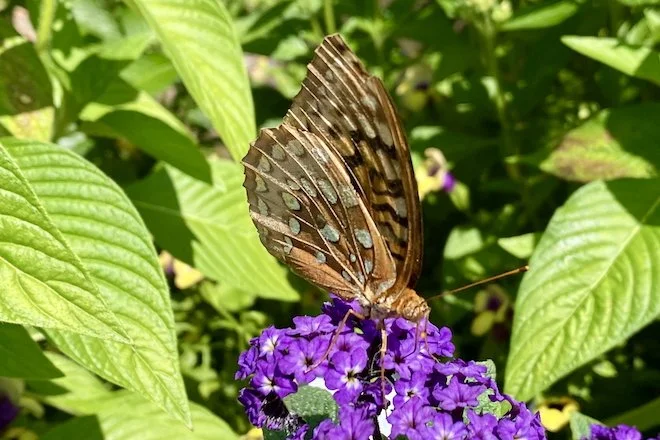This week: Butterfly Season
Hello,
If you planted a garden full of native plants, you’ve probably been getting some butterfly visitors. Consider this a quick who’s who of a few common butterflies, along with their larval host plants (caterpillar food) and a fun fact.
Eastern Monarch

Wingspan: 3 to 4 inches
Larval host: Milkweed (Asclepias)
Adult Monarchs live for just a few weeks, aiming to mate and find milkweed where they can lay eggs. However, the late summer generation lives as long as eight months—these are the ones who migrate hundreds or thousands of miles to Mexico for the winter.
Great Spangled Fritillary

Larval host: Violets (Viola)
Wingspan: 2 to 3 inches
Great Spangled Fritillary butterflies mate in the summer, after which some females enter a period of sleep called diapause. Then she’ll wake up to lay her eggs in the fall.
Eastern Tiger Swallowtail

Larval host: Members of the Magnolia and Rose families (Magnoliaceae and Rosaceae)
Wingspan: 3-5.5 inches
You can tell the difference between a male and female Eastern Tiger Swallowtail because females have blue scales along the bottom of their wings; males do not (a male is pictured).
Gray Hairstreak

Wingspan: 1-1.25 inches
Larval host: Members of the Pea and Mallow families (Fabaceae and Malvaceae)
While they are commonly found feasting on members of the Pea and Mallow families, Gray Hairstreak caterpillars aren’t picky and will munch on plants from at least 30 families.
Elsewhere:
Looking for reliable, science-backed information about plants on the Internet? Penn State Extension has compiled a great list of resources to help you sort the wheat from the chaff.
Have a good week,
Julie